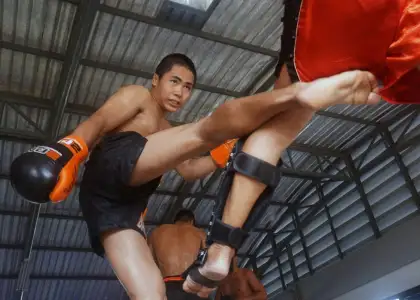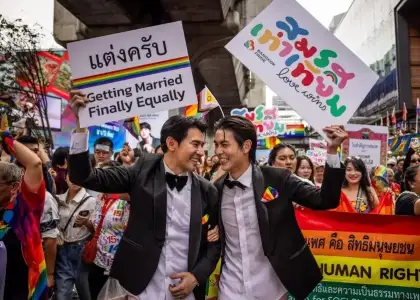What to Know About Thailand's Gender Equality Act of 2015

Thailand's Gender Equality Act B.E. 2558 (2015) is the first national legislation of its kind in Southeast Asia that specifically focuses on protecting individuals against discrimination due to gender expression.
Under the equality act, unfair gender discrimination is defined as "any act or omission of the act which causes division, discrimination or limitation of any right and benefit either directly or indirectly, without justification due to the fact that the person is male or female or of a different appearance from his/her own sex by birth."
The law's enactment saw the creation of key entities, one of which is the Gender Equality Promotion Committee, also known as the SorTorPor Committee, which is chaired by the prime minister. It comprises various secretaries from the government, as well as expert members who represent women's organisations and those from the fields of gender diversity, gender equality, law, human rights, and the social sciences. One of the committee's main duties is to create policies and measures to promote gender equality in the public and private spheres in the central, regional, and local areas of Thailand.
It likewise saw the establishment of the Committee on Consideration of Unfair Gender Discrimination (WorLorPor) and the Department of Women's Affairs and Family Development. The law is enforced by the WorLorPor Committee, the duties and powers of which mainly include deciding the unfair gender discrimination complaint cases filed by complainants. It also establishes temporary measures for the protection or mitigation of complainants, issues orders based on a case's decision, and submits complaints to the Ombudsman, among others.
Meanwhile, the department is tasked with managing all administration and academic functions of both the SorTorPor and WorLorPor committees, as well as supporting and promoting research to prevent unfair gender discrimination, and working with public and private organisations to prevent such.
In addition, the equality law also saw the creation of the Gender Equality Promotion Fund under the department, which includes government subsidy, financial support from agencies, donations, fines from penalty against the law's violators, and others. According to the act, the fund shall be spent on activities and initiatives promoting gender equality, preventing gender discrimination, assisting and compensating persons subject to gender discrimination, providing advice, and promoting research and dissemination of knowledge about gender discrimination, among others.
Any person who believes he or she has suffered caused by acts considered under gender discrimination is entitled to file a complaint to theWorLorPor Committee, whose mandate is to consider and decide whether the case is indeed unfair discrimination, and the decisions of which are considered final.
Compensation and remedy for injured parties are provided in cash or in kind. The law highlights, however, that receipt of compensation does not translate to termination of the injured party's right to file a lawsuit to demand damages. For more details regarding compensation and remedy, go here.
The Need for Stronger Enforcement of Act, ‘Legal Gender Recognition’

According to General Prayuth Chan-o-cha, the act was promulgated due to the absence of a clear measure to prevent unfair gender discrimination in Thailand, and therefore, the absence of protection for those who are subjected to unfair gender discrimination.
While the Gender Equality Act of Thailand is considered a pioneer and important law of its kind, the Human Rights Watch's (HRW) "People Can't Be Fit Into Boxes" report from December 2021 showed that the law's "enforcement appears to be insufficient."
For example, between 2016 and 2019, the WorLorPor Committee adjudicated 27 complaints, most of which included cases of transgender women who were subjected to unfair gender discrimination.
Citing a report by the United Nations Development Programme and Thailand's Department of Women's Affairs and Family, it was found that majority of these cases took longer than the 90 days (about 3 months) prescribed for adjudication, which was "a delay attributed to lack of clarity on standard operating procedures and lack of cooperation from accused parties – and that even in cases where the committee found liability, no punishment was ordered."
The HRW concluded that the WorLorPor Committee's adjudications call for "more robust enforcement mechanisms." It also underscored the importance of having an "accessible and transparent legal gender recognition policy" – something that Thailand currently does not have – to protect the transgender community in the kingdom.
Get the latest curated content with The Beat Asia's newsletters. Sign up now for a weekly dose of the best stories, events, and deals delivered straight to your inbox. Don't miss out! Click here to subscribe.







































